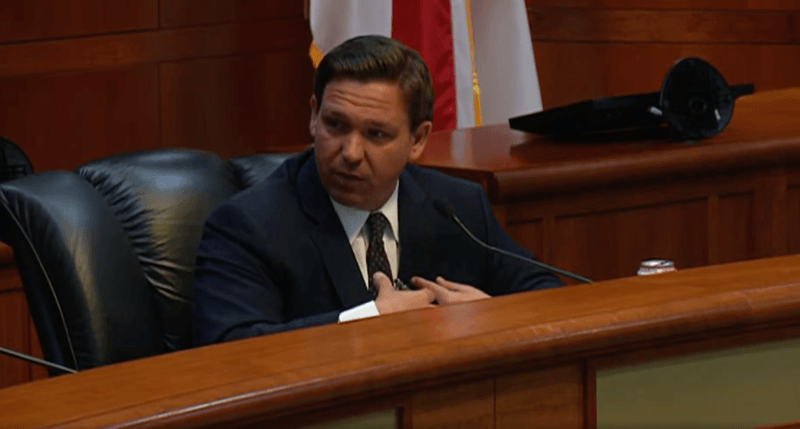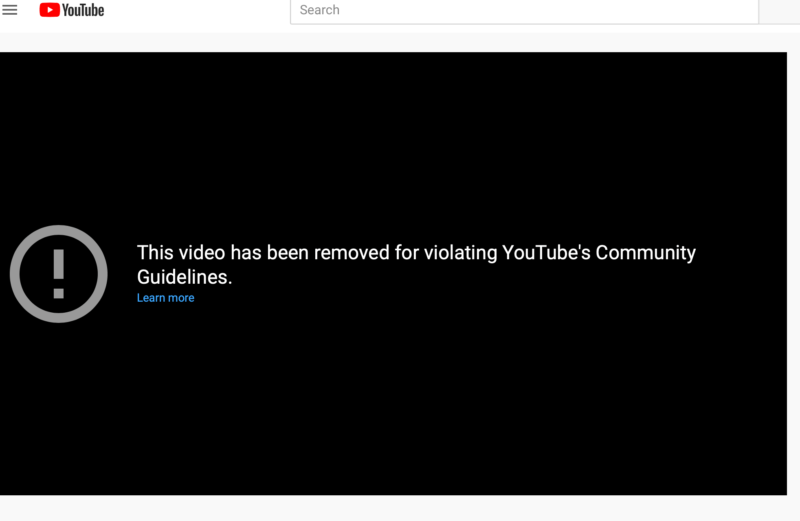 Jeffrey A. Tucker
– April 7, 2021 @ American Institute of Economic Research
Jeffrey A. Tucker
– April 7, 2021 @ American Institute of Economic Research

In 2020, Florida took the lead in rejecting lockdowns. The effort was led by Governor Ron DeSantis, who in the course of the pandemic became a master of knowledge and erudition on matters of public health and the cell biological issues concerning immunity. In removing mandates and restrictions, he was under the influence of the signatories of the Great Barrington Declaration along with public health scholar Scott Atlas.
The efforts in Florida to protect the elderly while permitting the rest of society to function normally led to a success that has been celebrated the world over. It causes major disruption to the lockdown narrative that the only way to suppress a virus is to suppress rights and freedoms.
As a retrospective on the policy, the governor held a roundtable with all four scientists. Lasting an hour and a half, they covered all the major issues. The video itself came to serve as a tutorial in the relationship between public policy and virus mitigation.
With no warning, no announcement, and no explanation, YouTube on April 7, 2021, suddenly deleted the entire video from its platform. Once hosted by WTSP Tampa Bay, an NBC affiliate, it originally appeared as embedded in a story on WTSP.com. The video that once lived here is now replaced by this.

AIER embedded that same video on our story about the event, along with the first and still the only full transcript of the event. In the late afternoon, the video appeared completely blanked out.
After the lockdowns last spring, YouTube announced that it would pull any video with coronavirus information that was at odds with the recommendations by the Centers for Disease Control and the World Health Organization, organizations that aggressively backed lockdowns in 2020 (after ten years of opposing them). When the CDC and WHO began to contradict themselves on many issues, among which included immunities and their source, YouTube took a different direction, curating the “science” themselves and deleting any video that its employees didn’t like.
This policy has now run afoul of the basic needs of public health messaging, science, and sound policy decision making, even to the point of removing a serious forum of a popular government along with his scientific advisors from Harvard, Stanford, and Oxford universities.
AIER has dealt with problems of censorship for the better part of a year. We began to find alternative sources to host our content, companies that would not engage in sudden takedowns and censorship. Our own choice has been LBRY, which hosts all our videos on a channel.
This sounds like a good solution to censorship, but there is a vulnerability. The Securities and Exchange Commission has singled out LBRY for investigation and fines as high as $11 million for unlawful distribution of securities. The complaint is about the protocol ownership tokens that are distributed to those who use the platform, as a way of incentivizing and monetizing the creation of content. LBRY is only one of many thousands of companies that are using this new method, which is made possible by blockchain technology and the tokenization of internet finance. The SEC has been ambiguous on the question of whether a token is a security but states such as Wyoming have specifically legislated against this claim that fundamentally threatens the entire crypto industry.
Why is LBRY being singled out for investigation? Is it possible that the complaint against the company was initiated by YouTube as a way of tightening the tech giant’s control over internet content? We do not know but it is not crazy to suspect that this is what’s going on.
This latest attack on public health information comes barely one week after Twitter aggressively censored one of the scientists on DeSantis’s panel, Martin Kulldorff, one of the original creators of the Great Barrington Declaration. Meanwhile, Twitter itself has bragged about its new tools for removing anything that contradicts the government/corporate agenda.
(Editor's Note: In the original article there appears some Twitter inserts here I can't reproduce. Go to the original article to see them. RK)
And to mention one more case of big-tech/big-media manipulation, Governor DeSantis himself was subjected to an outrageous case of editing by 60 Minutes. The show deliberately distorted its broadcast version of a question and answer session, completely leaving out of its account an extended explanation by the governor that proved that the nature of the question was completely false.
The pulling of the roundtable video comes a day after the total humiliation of 60 Minutes in many stories that defended the governor. Its deletion of the most viewed version online denies viewers the opportunity to observe DeSantis’s impressive knowledge on the subject of the coronavirus and the
And to mention one more case of big-tech/big-media manipulation, Governor DeSantis himself was subjected to an outrageous case of editing by 60 Minutes. The show deliberately distorted its broadcast version of a question and answer session, completely leaving out of its account an extended explanation by the governor that proved that the nature of the question was completely false.
The pulling of the roundtable video comes a day after the total humiliation of 60 Minutes in many stories that defended the governor. Its deletion of the most viewed version online denies viewers the opportunity to observe DeSantis’s impressive knowledge on the subject of the coronavirus and the public policy response.
Jeffrey A. Tucker

Jeffrey A. Tucker is Editorial Director for the American Institute for Economic Research.
He is the author of many thousands of articles in the scholarly and popular press and nine books in 5 languages, most recently Liberty or Lockdown. He is also the editor of The Best of Mises. He speaks widely on topics of economics, technology, social philosophy, and culture.
Jeffrey is available for speaking and interviews via his email. Tw | FB | LinkedIn
No comments:
Post a Comment